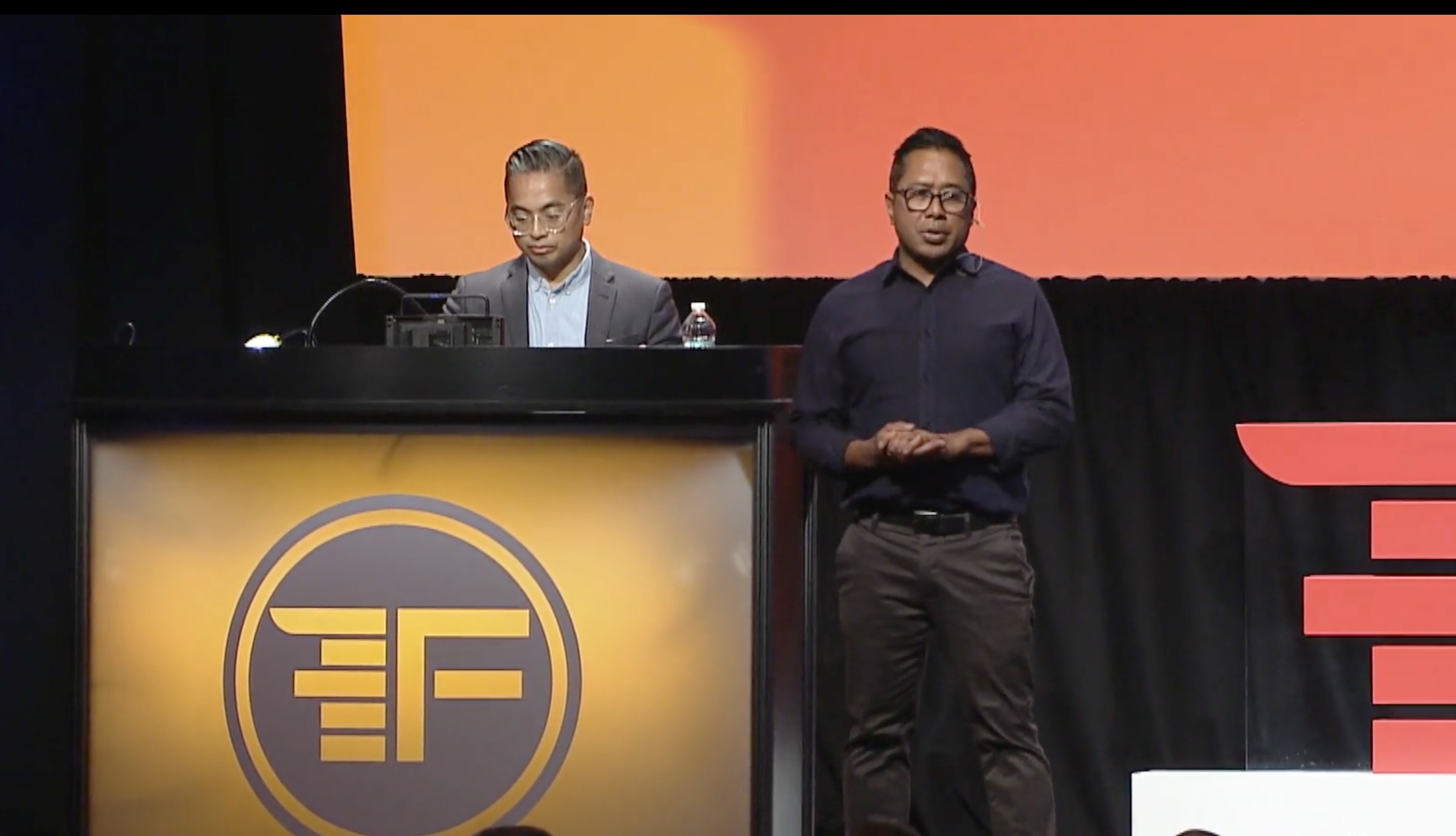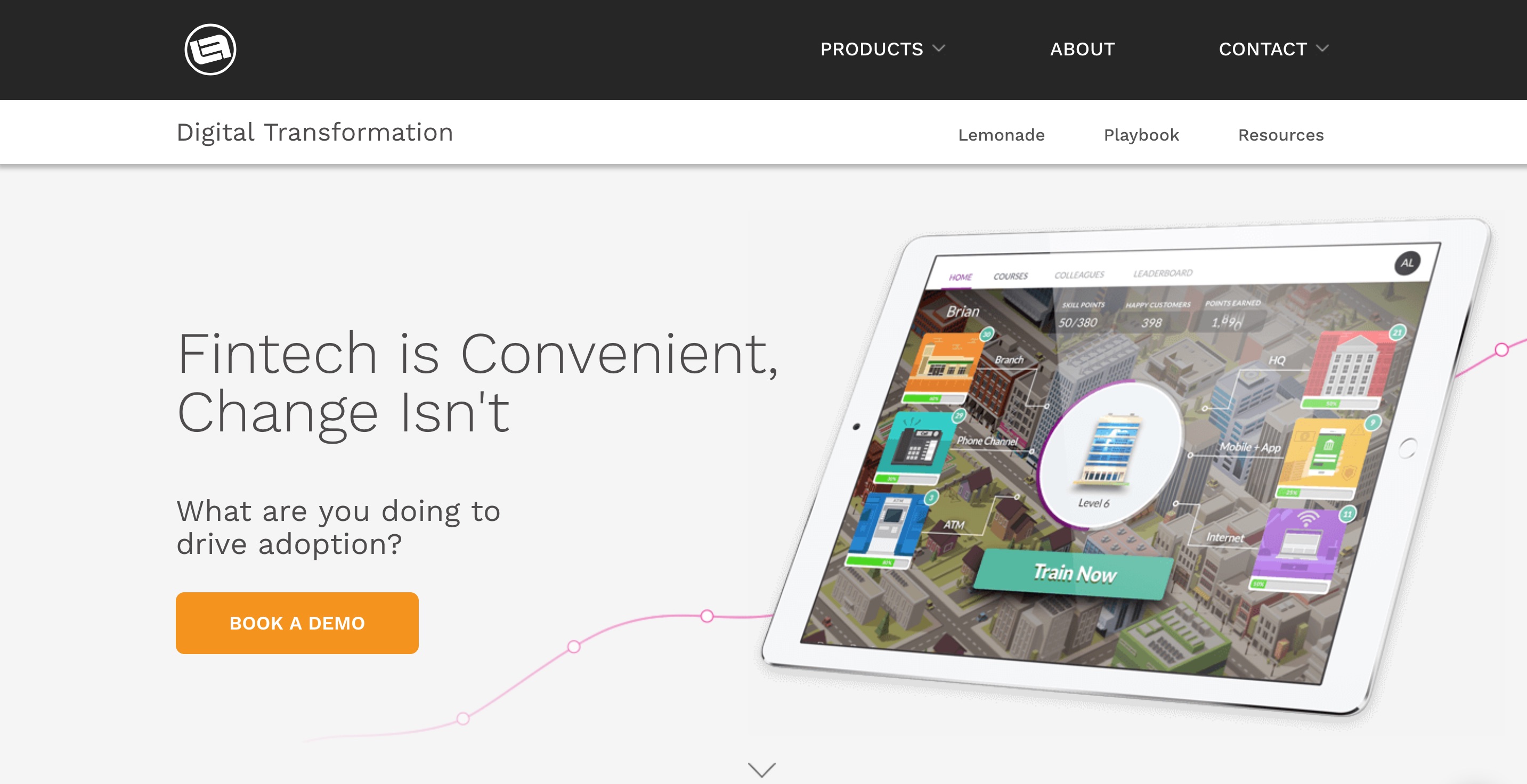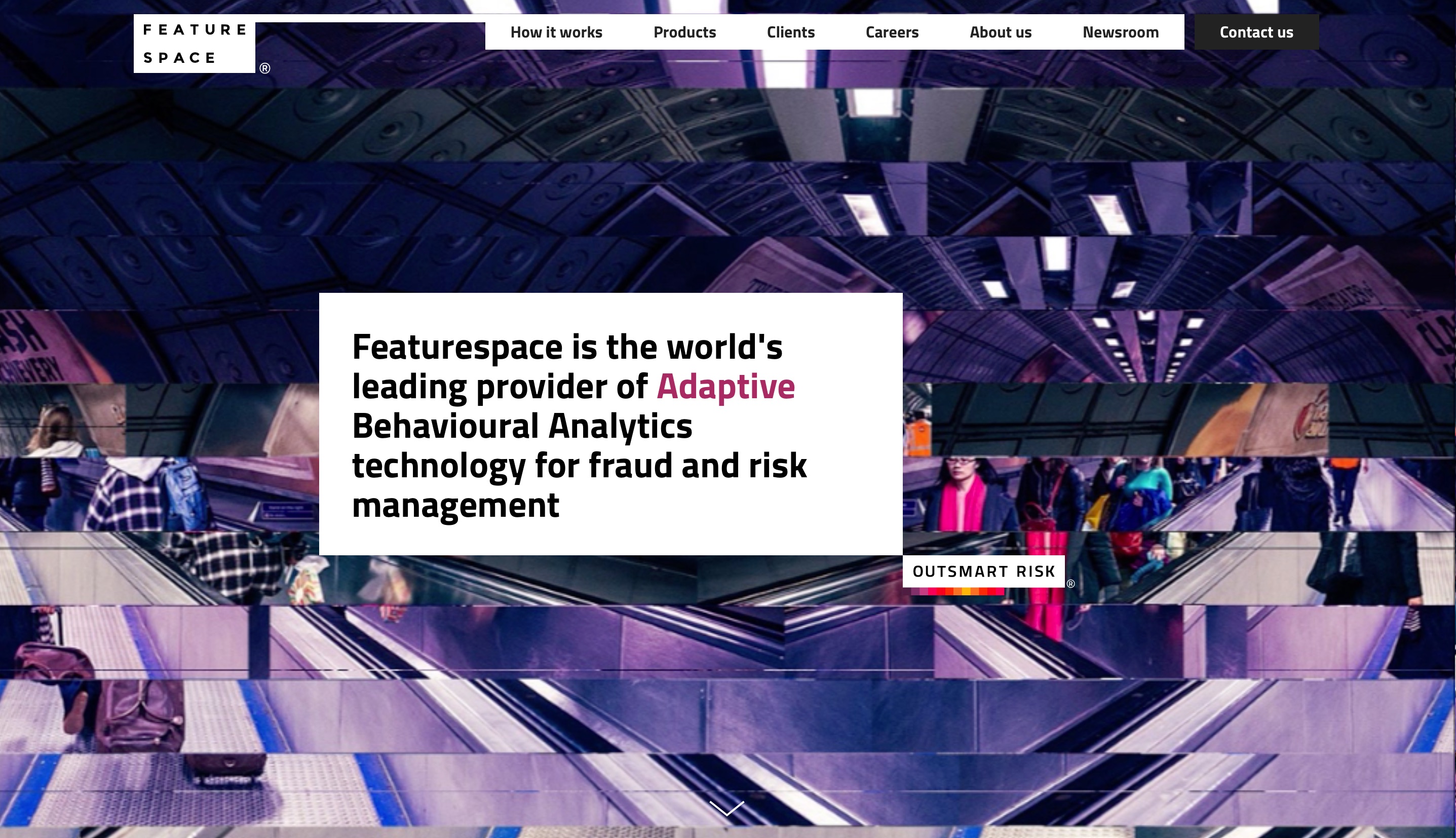
Two of the hottest trends in fintech – blockchain technology and identity management – converge in the latest partnership between identity verification platform Onfido and global digital asset payments specialist BitPay. The companies are working together to enable Onfido customers to pay for identity verification services using Bitcoin. At the same time, BitPay will leverage Onfido’s technology to satisfy its own KYC compliance requirements, as well as to accelerate secure onboarding.
“At Onfido, it’s our mission to build an open world where identity is the key to access,” said company co-founder and CEO Husayn Kassai. “Partnering with Bitpay was the obvious choice for both our businesses. BitPay enables us to securely service more people in a way that is cost-effective and quicker than a bank wire, while we can deliver them the most trusted identity verification service in the crypto space.”

Above: Onfido’s Joel Sacmar (Sales Engineering) and Rob Connors (New Business & Channels) demonstrating Facial Check with Video at FinovateFall 2018.
With more than 1,500 customers globally, Onfido will leverage its partnership with BitPay to further expand worldwide. The company is especially interested in reaching un- and underbanked communities where transactions via mobile device are more common than credit card payments. BitPay will benefit from Onfido’s antifraud technology, which is currently used by more than 30 of the biggest crypto exchanges and wallets in the world.
“We selected Onfido as our internal identity verification platform as it had the most robust functionality and was easiest to use,” BitPay CEO and President Stephen Pair said. “Allowing crypto companies to pay in Bitcoin shows Onfido’s commitment to the crypto space, and we’re excited to be working together to make crypto more secure, for more people.”
BitPay processes more than $1 billion a year from merchants and B2B customers. Founded in 2011, the company verifies and accepts Bitcoin payments on behalf of its partners, and businesses get their funds settled in fiat currency within one to three business days.
Headquartered in London, U.K., Onfido demonstrated its Facial Check with Video technology at FinovateFall 2018. The feature, available via the company’s SDK, leverages machine learning to validate a user’s identity document, cross-referencing the user’s facial biometrics with international credit and watchlist databases.
Reviewed in the Fintech Times earlier this month after announcing what it called “its strongest year to date,” Onfido earned a spot on the RegTech 100 last fall, and was also featured in Deloitte’s list of the 11 fastest growing tech companies in the United Kingdom.
With investors including Idinvest Partners, Wellington Partners, and Crane Venture Partners, Onfido has raised $60.3 million in funding. The company was founded in 2012.
A look at the companies demoing live at FinovateEurope on February 12 through 14, 2019 in London, U.K. Register today and save your spot.
 Presenters
Presenters


 Presenter
Presenter
 Presenters
Presenters Tamás Braun, International Sales and Business Development Director
Tamás Braun, International Sales and Business Development Director Remco Veenenberg, Head of Alliances
Remco Veenenberg, Head of Alliances
 Presenters
Presenters






